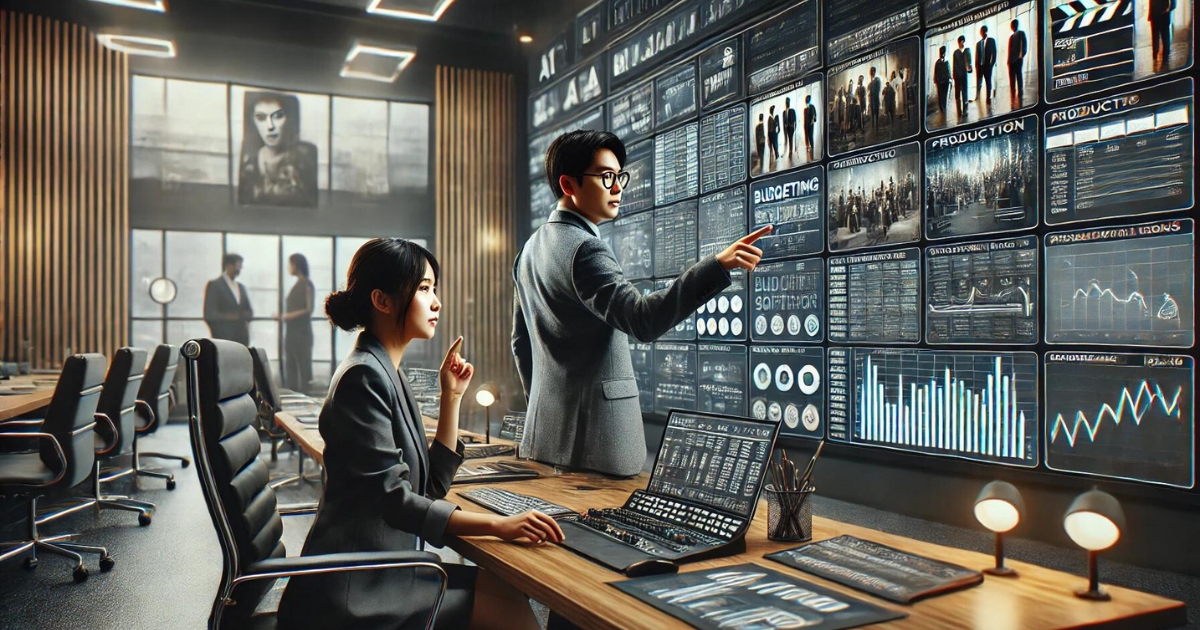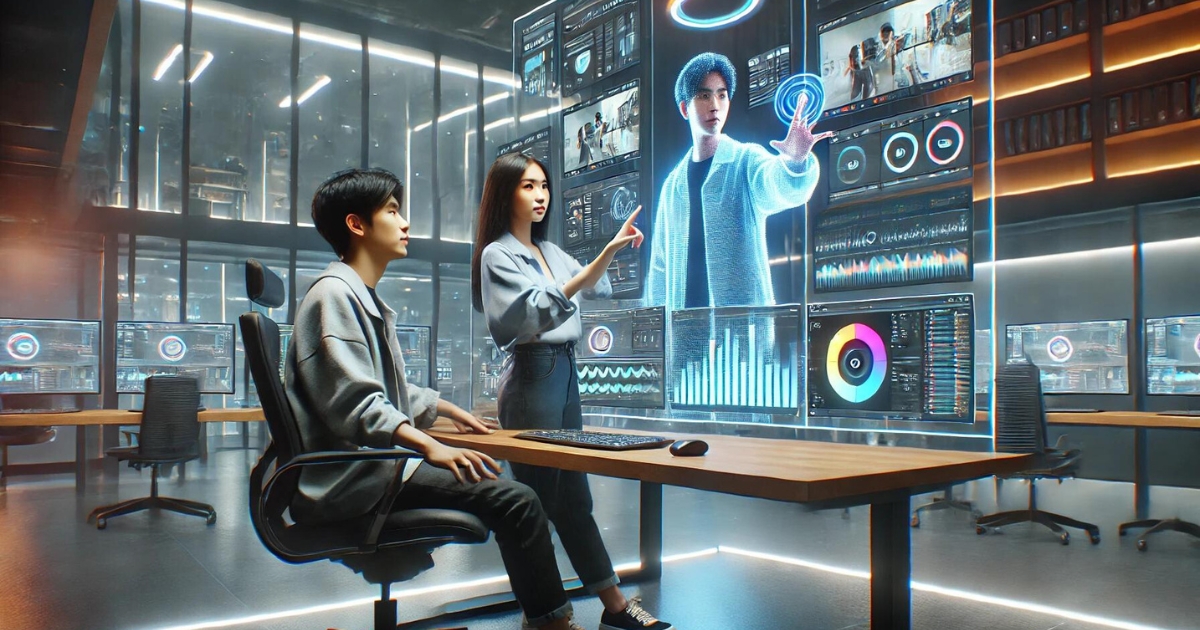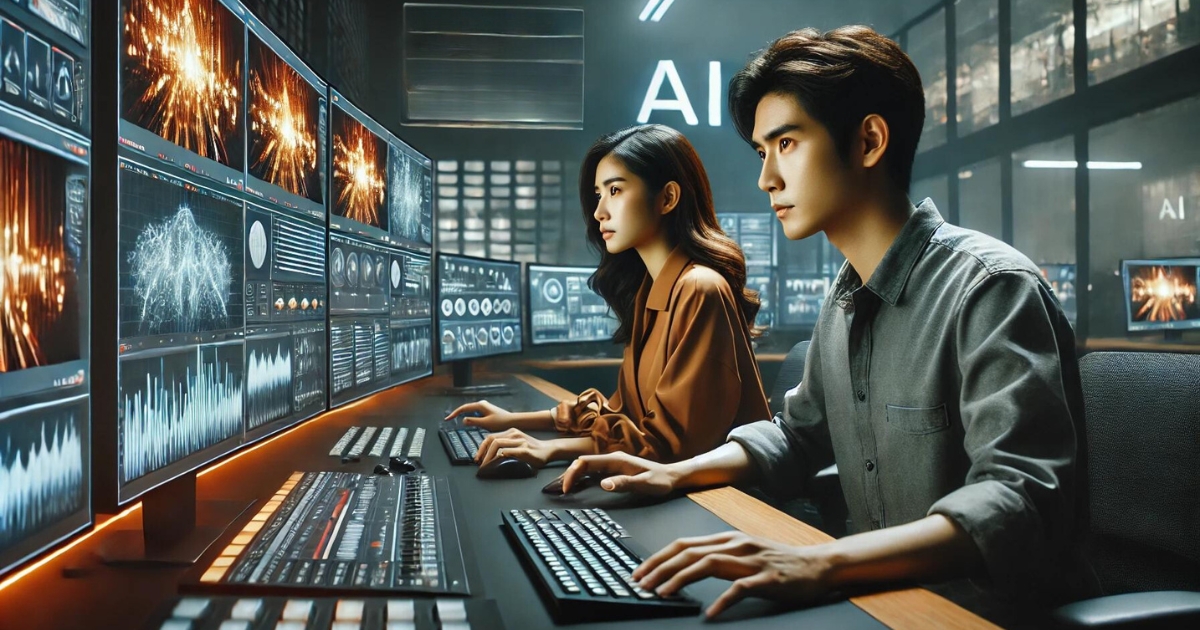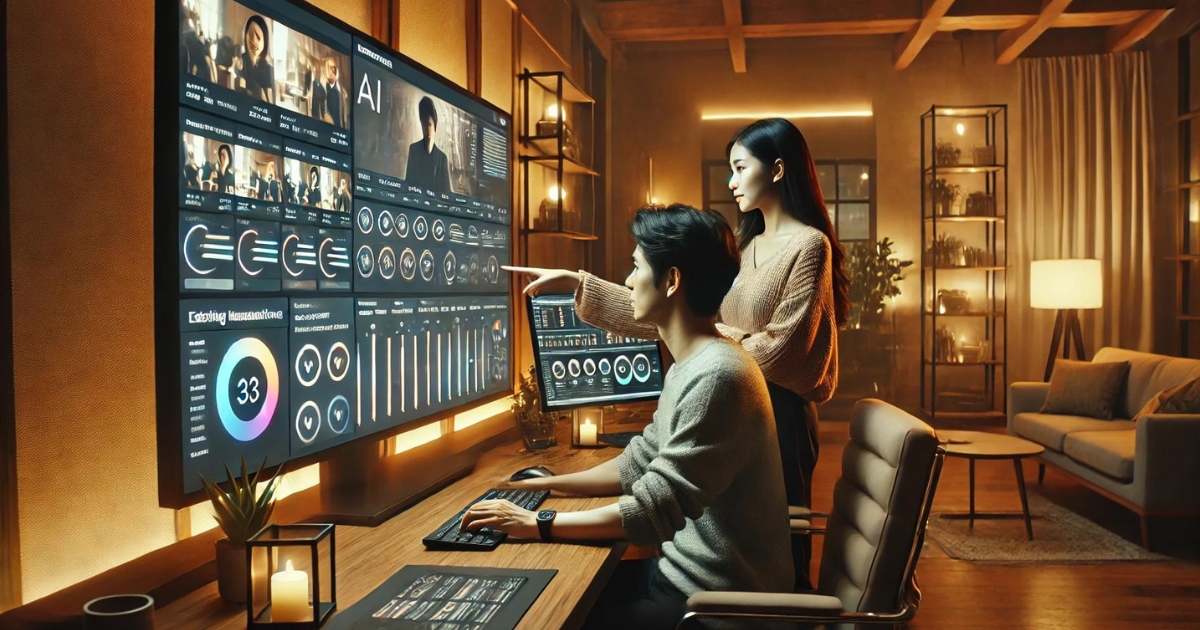Revolutionising Post-Production with AI Tools
Automated Scene Detection and Selection
AI is changing how filmmakers handle post-production. Tools like Adobe Premiere Pro and DaVinci Resolve use machine learning to make video editing faster and easier. They can look at footage and suggest edits, making the whole process smoother and better.
Enhancing Visuals with AI-Powered Colour Grading
AI helps improve the look of films by using smart colour grading. This means the software can automatically adjust colours to make scenes look more vibrant and professional. This saves a lot of time for filmmakers who would otherwise do this manually.
Streamlining Sound Design and Noise Reduction
Sound is a big part of any film, and AI can help here too. AI tools can clean up audio by removing background noise and enhancing the overall sound quality. This makes the final product sound much better and more polished.
Efficiency and Cost Reduction in Filmmaking

AI tools are transforming the filmmaking industry by automating repetitive and time-consuming tasks. This allows filmmakers to focus more on creativity and storytelling. By speeding up the editing, VFX, and animation processes, AI technology saves time and reduces production costs. This makes filmmaking more accessible to emerging talents and independent filmmakers, fostering a more diverse and inclusive film industry.
Today, filmmakers can use AI solutions in video editing to drastically reduce production times and decrease the budget needed to fulfil their creative visions. Films that previously needed massive budgets can now use novel technologies powered by large foundation models to broaden their creative faculties for multiple facets of their process, from storyboarding to visual effects and CGI on post-production editing.
Film and TV producers are continually looking for methods to improve production workflows and reduce time to market. AI-powered automation technologies provide a solution by automatically handling activities like film organisation, colour correction, and audio synchronisation. By using AI automation’s potential, producers may speed up the editing process, eliminate manual labour, and quickly fulfil tight production schedules.
Personalised Editing Recommendations
Analysing User Preferences and Behaviours
AI can study how users edit videos and learn their preferences. By understanding these patterns, AI can suggest edits that match the filmmaker’s style. This makes the editing process faster and more in tune with what the filmmaker wants.
Tailoring Editing Approaches to Filmmaker Styles
AI tools can adapt to different filmmakers’ styles, offering personalised suggestions. This means each filmmaker gets unique recommendations that fit their way of working. It helps in maintaining a consistent style across different projects.
Optimising Transitions and Effects
AI can also help in choosing the best transitions and effects for a video. By analysing the content, AI can suggest the most suitable options, making the final product look polished and professional. This not only saves time but also enhances the overall quality of the video.
Future Trends in AI-Assisted Video Editing

AI-powered video editing is changing the way films are made. AI systems can now analyse huge amounts of data to find patterns and make editing faster. This means filmmakers can spend more time on the story and less on the technical stuff. New AI tools can even pick the best shots and get rid of unwanted parts, making the editing process smoother. As AI keeps getting better, it will play a bigger role in how videos are made and shared. This new technology is not just about speed; it’s also about giving filmmakers more control over their work. The future of video editing looks bright with AI leading the way.
Conclusion
AI-powered video editing is changing the way filmmakers work, making the editing process faster and more efficient. These tools can automatically pick the best shots, remove unwanted parts, and even create video summaries. They also help with colour grading, noise reduction, and adding visual effects. This means filmmakers can spend more time on storytelling and less on repetitive tasks. As AI continues to improve, it will offer even more ways to help filmmakers bring their creative visions to life. The future of filmmaking looks bright with AI on the scene.




